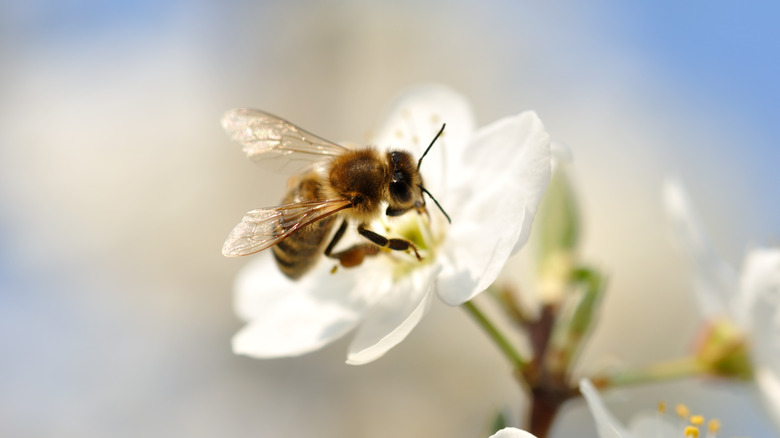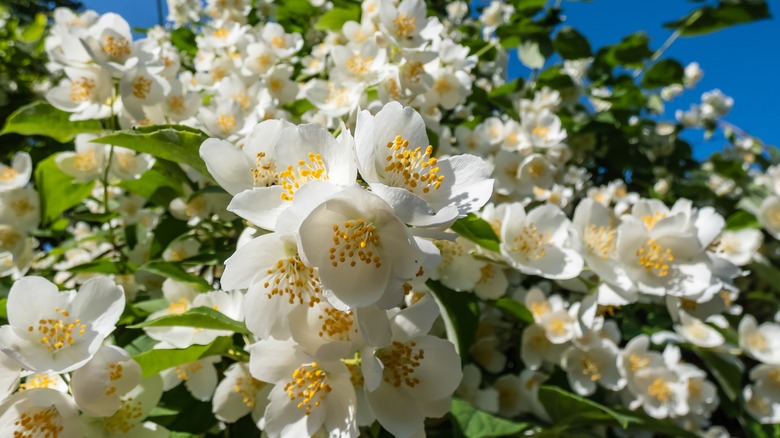The Orange Blossom Look-Alike That Will Attract Spring Pollinators To Your Yard
If you're looking for a way to bring more pollinators into your yard and garden this spring, one deciduous shrub could be a gorgeous solution. Mock orange (Philadelphus coronarius) has beautiful flowers that bloom throughout May and June, and bees and butterflies are often attracted to the mock orange flowers — which resemble orange blossoms — as well as moths. By planting this bush on your property, you could feed local pollinators and they may help you in the garden.
These shrubs are relatively easy to care for and while some varieties are native to parts of Asia and Europe, others are native to North America. Mock orange plants can grow between 4 and 10 feet tall, making them a great choice for a hedge around your yard or as a border for your home. Though the flowers are typically a white color, some varieties could blossom with pink or yellow florals. No matter where you decide to plant it, this flowering plant will have bees buzzing around your yard.
Caring for mock orange bushes
While they only bloom for a short time each year, these bushes with fragrant flowers are perfect for your yard, especially if you want to support pollinators. Mock orange plants like areas with nutrient-rich and well-draining soil and prefer to have lots of direct sunlight, though they will still thrive in spots with partial shade. These plants can also tolerate a variety of soil textures, from clay to sandy soils, as long as it is moist but not soggy. These conditions will help your mock orange bushes to produce more of their beautiful blooms.
Mock orange plants also tend to spread themselves or become leggy. Because of this, you will likely need to prune the bushes often to keep them neat, help them hold their shape, and produce more flowers for your pollinators. These bushes should also be pruned after they stop flowering for the year. While established mock oranges can handle a little drought, these plants like to be watered regularly, especially when the weather is hotter.


